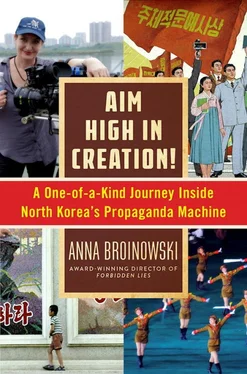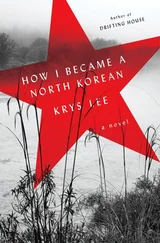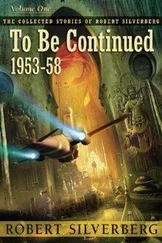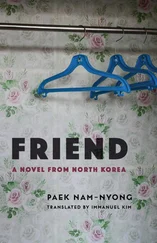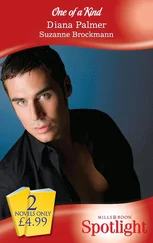SALLY:How can I make you forgive me?
Karen looks at Sally with quiet conviction.
KAREN:Help me to fight.
SC 13—ERSKINEVILLE TOWN HALL—DAY
Sally, Al, and Karen address the Villagers. They are sick and desperate.
SALLY:My mother once made a sign, alone. But in her heart, she made it for thousands.
AL:For the gardeners who toil in the park, the children who play in its valleys, the animals who depend on its water, we must finish what she started!
KAREN (standing) :We must fight not just for ourselves, but for farmers and workers everywhere!
The Villagers stand and cheer. Military music starts.
SC 14—HILL—SYDNEY PARK—DAY
A yellow “NO GAS” triangle appears over the rise, bobbing on a stick. Then two more. They are followed by Karen, Sally, and Al, singing as they march: NO CSG! Behind them, more Villagers appear. Riccard and Mitch look on.
RICCARD:It’s meaningless. The media will forget it in a day.
A hundred more Villagers surge over the rise, singing lustily. Riccard, shrugging, walks off.
RICCARD:They’ve got no proof.
Mitch stares at Sally at the front of the crowd, singing proudly. She glares at him, defiant. He thinks hard. Then he runs after Riccard and grabs the drill map from his briefcase.
MITCH:Here’s the proof, you prick!
Riccard punches Mitch hard and snatches back the map. Mitch staggers to his feet and Riccard raises his fist again—but Mitch blocks Riccard’s arm, throws him on his back, and dumps him on the ground. It’s the move Sally taught him at tae kwon do. Sally beams. Mitch runs up to her with the map. The lovers embrace. The Villagers cheer. We zoom out to a magnificent wide of the hill. Revealing a huge human sign, spelled out by one thousand villagers in the grass: STOP CSG. Riccard groans in the dirt, a broken man. Karen stands ecstatic in the middle of the crowd. As she speaks, the sign melts away—leaving her alone on the hill.
KAREN (voice-over) :That is the tale of how I, a simple gardener, united my village to defeat a powerful enemy. It is a tale repeating itself across the world as people rise up to defend what is theirs. Proving to the venal capitalists, once and for all—if you put profit before people, the People always win.
Karen strides up the hill. A pelican wings across the sky. Karen stops, watching it. Then she waves at us, and disappears over the rise.
THE END
MR. PAK ISN’T INTERESTED IN TALKING about my script. He wants to know if I like watching porn. Despite the fact we were late, arriving to find twenty of North Korea’s finest filmmakers already waiting in chain-smoking silence, Pak rose to greet me like an old friend. “I missed you so much, I dreamt of the day I would hold your hand again,” he said, and I held his hands, genuinely happy to see him. Now he’s bantering with me in Japanese as Nic lights the Kims on the wall.
“I guess I like French films that have some erotic scenes,” I say, relieved that Pak’s colleagues can’t understand us.
He shakes his head: “I do not consider porn film at all.” “But French films are not pornographic; they are art,” Sun Hi says, blushing, coming to my defence.
Pak darkens: “Pornography is not film at all!”
I assume Pak’s vehemence stems from the fact that sex has been banned from North Korean movies since Shin Sang Ok defected to LA. That famous close-up of Choi Eun Hee’s thigh in Salt is now erased from the national memory. But Pak surprises me: “I have shot over seventy films, but sadly I haven’t got to do a single sex scene yet,” he says wistfully, and I realise the old man is not anti-sex; he just doesn’t like being contradicted. The Man in Black enters the room, and Pak snaps back to Korean: “Although sex is a natural thing everyone does, it’s not good for children’s education, so we don’t show it,” he says, loudly. “In our country, we only make films that can be watched together by everybody, from little children to old people.” I nod, struck by the oddness of a film industry without a classification system. Then again, when propaganda is the main game, and families attend each new release together, I guess it makes sense.
I show Mr. Wang how to plug the boom into the camera and angle it towards a person’s mouth. Mr. Wang watches closely, then points the mic in exactly the wrong direction. Pak abuses him in rapid-fire Korean, but Mr. Wang is unfazed: “Tell the Comrade Director I shall do my best for her at all times,” he says and lights a cigarette.
Pak, mollified, turns his attention to Nicola. “Your cameraman, is she married?” he asks pleasantly. Nicola blinks and keeps working. Female cinematographers are unheard of in North Korea, which to Pak is logical: “The equipment is too heavy for them, and anyway, they can’t leave their children for long.” I counter that Nicola, while single and childfree, is one of the top documentary shooters in Australia and Britain, lauded for her work in Iraq. “She is a brave and fearless comrade,” Sun Hi embellishes supportively. “In Baghdad, she filmed inside the American bastards’ tank.”
Mr. Pak gazes at Nicola with new respect: “Nicola, we must give you a medal for being a freedom fighter,” he says, enjoying the irony.
I check the viewfinder. Our first shot is a brazen product placement for Apple. The designers of the MacBook Pro would probably be astonished to know that right now their computer is sitting on a coffee table in Pyongyang under a picture of Kim Jong Il, being scrutinised by North Korea’s top directors, writers, and movie stars. I plug in a puck-sized speaker I bought in Beijing, and the North Koreans watch carefully, taking care not to appear too impressed by my state-of-the-art gadgets. Then I tell Pak to press Play, and he looks at me blankly. I show him where the space bar is and how to manoeuvre the mouse. Frowning with concentration, Pak reaches out a stiff finger and pokes the keyboard. The Man in Black opens his notebook, and the video I made in Sydney starts.
“Annyeong hashimnikka,” I wave from a bench in Sydney Park. “Thank you for helping us make The Gardener .” Bucolic shots of casually dressed Sydneysiders follow: walking their dogs, barbequing chops, playing frisbee with kids by the swan-filled ponds. My beautiful heroine, Susan Prior, appears, meditating under a gum tree. “What I like most about Kim Jong Il’s manifesto is he says that acting is a noble profession,” Susan tells the filmmakers. “Oh—and just because I meditate every day doesn’t mean I don’t have fun.” The North Koreans smile at Susan, charmed. I wink at Nic. This is going well.
Next up is our evil fracker Riccard, played by heartthrob Peter O’Brien. He rides into frame on a Harley, skidding to a stop on the wave-pounded cliffs of Coogee. “I want to know what films from the West you’ve seen,” Peter says, grinning, “particularly the ones that I’m in.” The North Koreans lean closer, fascinated by the bad-guy montage of Peter—beating up cops, kissing men in nightclubs, and smoking cigars in a spa—in everything from the Aussie crime soap Underbelly to the UK hit series Queer as Folk .
The video switches to the leafy suburbs, and my star-crossed lovers appear. Matt Zeremes sits in a toy-strewn lounge room and asks the North Koreans to teach his five-year-old son “how to jump over trees, like your awesome kung-fu fighter in Hong Kil Dong .” The filmmakers nod, delighted, and gorgeous Kathryn Beck strolls into view, reading Kim’s manifesto in the sun-kissed streets of Bronte. “What I love about your movies is the sincerity of the acting,” she says dreamily, looking out at the mansions fronting the beach. “I also want to know if you believe in extraterrestrials and life after death.”
Читать дальше
